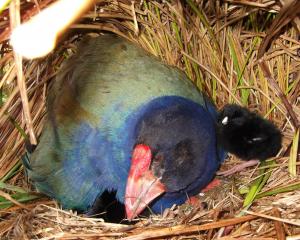
If successful, it will help the ecosanctuary ride out decreasing government funding and the uncertain nature of donations and bequests, Otago Natural History Trust treasurer Ross Smith says.
The ecosanctuary was heavily dependent on Department of Conservation biodiversity funding, which was uncertain because of the department's reorganisation, he said.
Of the $333,000 in donations and grants it received, 66% was from government departments or local authorities, the ecosanctuary's last annual report said.
''Given government funding changes from year to year, we decided we need an investment fund.''
The trust was ''not losing cash'' and aimed to break even, but did not want to get into the situation of borrowing funds, which had proved nearly fatal for other projects, Mr Smith said.
People had donated money towards ecosanctuary operating expenses or for particular projects, but the foundation would give them another option.
Donors could stipulate the money was invested in the foundation and then the interest could be used to cover ''critical costs'' if needed.
Such a fund had worked well for other organisations, such as the Otago Community Hospice, providing financial stability, he said.
''Staff can then refocus on their core work, rather than worrying about funding. That is where we want to get to.''
The target was $2 million as the returns from that would cover operating the ecosanctuary and key staff.
Trust chairman Neville Peat said he hoped the foundation would provide financial security over the longer term.
On top of the ongoing costs of operating the predator-proof enclosure and visitor centre, there were also costs associated with translocating species to Orokonui.
The recent capture and transfer of 50 South Island saddlebacks from Breaksea Island in Fiordland had a budget of $20,000, he said.
''We fly pretty close to the wind and whatever surplus we have is ploughed back into the developing the ecosanctuary.''
The ecosanctuary aimed to not only restore nature conservation but also help people realise they could help with conservation.
''It boosts public interest in conservation and adds to the profile that [Dunedin] is the wildlife capital of New Zealand.''


